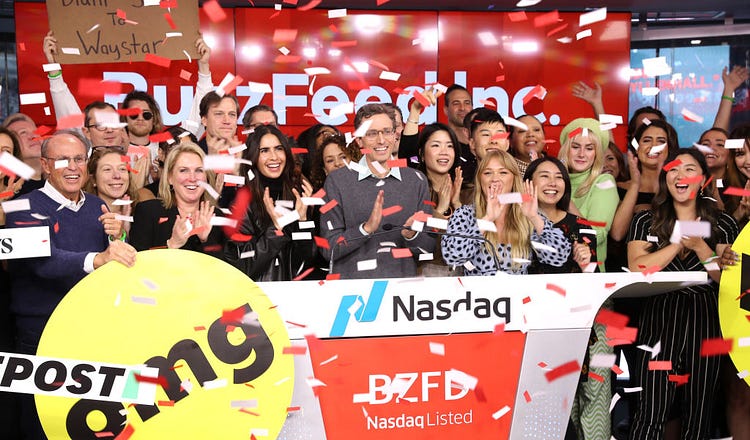
In his novel This Side of Paradise, F. Scott Fitzgerald makes occasional mentions of something he calls “the electric.” The book, Fitzgerald’s first, was written in 1919 and published in 1920, precisely the era when cars were overtaking the horse and buggy; “the electric” was how people a century ago referred to an electric car.
Electric cars were expensive, but if you had money, you favored them because they didn’t require a hand crank. It wasn’t long, though, before the electric was overtaken by Henry Ford’s cheaper, more reliable—and gasoline-powered—Model T. After which every entrepreneur who had bet on electric cars was soon out of business. They’d made a bet on the future, and they’d lost. Welcome to capitalism.
The story of the internet news site is a lot like what happened in the early days of the auto industry.
Dozens of companies were started during the late aughts and early 2010s by smart, ambitious entrepreneurs, who all made bets on how social media would evolve and which business models would succeed. Some of the bets were idiotic—I’m looking at you, Ozy and Quibi. But many others made sense, or at least they seemed to at the time. That is, until the world veered off in a direction their founders hadn’t expected.
Here we are, a dozen or more years from those hopeful days, and once again capitalism has done its brutal work. A clear picture is emerging—especially over the past few weeks—of the winners and losers.
Companies like The Information, The New York Times, and Axios are our Model Ts. Their bet was on producing must-have content that readers were willing to pay for (or, in the case of Axios, that advertisers were willing to pay a premium to reach). The companies that made losing bets included Gawker, Vice, and BuzzFeed, whose CEO, Jonah Peretti, announced last month that he was shutting the company’s news division. The bet they made was on traffic—that if they could generate ever-increasing numbers of viewers, they would be rewarded with ever-increasing ads and ever-increasing revenue. Without really intending to, they wound up hitching their fate to one of the world’s most voracious monopolists: Facebook. And by the time they understood what they had done, it was game over. (Disclosure: my daughter Kate has been an editor at both BuzzFeed News and Axios.)
As it happens, around the same time Peretti was making his sad announcement, Ben Smith, the editor who built BuzzFeed News, was making the rounds of podcasts and TV shows, plugging his new book, Traffic. It’s a gossipy account of how Peretti, Gawker founder Nick Denton, and others who were there at the creation figured out how to get ever-increasing numbers of people to spend time on their sites and then used that knowledge to build businesses that generated revenue, if not profit.
But Traffic also turns out to be an instructive primer on the evolution of the modern media company’s business model.

